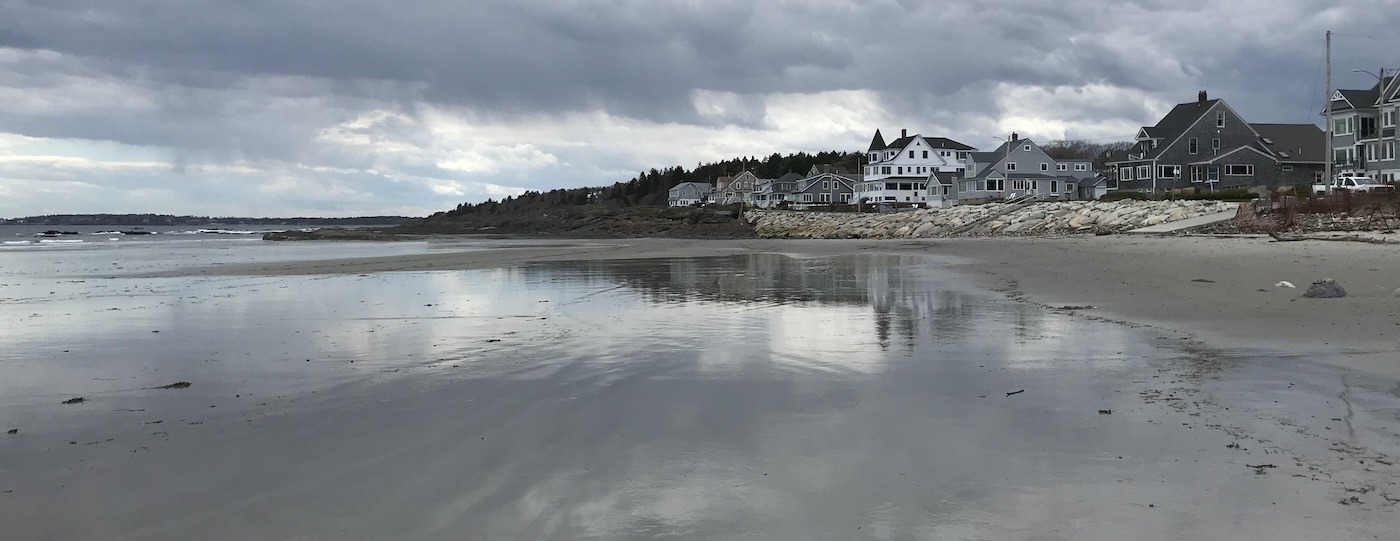
08.02.24
Surfrider Urges Maine Supreme Court to Restore Public Recreational Beach Access
By Staley PromSince the 1980s, bizarre case law in Maine has made it permissible for members of the public to walk along the State’s beaches carrying a gun to hunt birds, but not walk along the beach with binoculars to bird watch; and to walk along the coast carrying a spear gun for fishing, but not a surfboard for riding waves.
Relying on a 1647 Colonial Ordinance from Massachusetts, in the 1986 and 1989 “Bell cases”, the Maine Supreme Judicial Court held that shorefront property owners in the State own the property all the way to the mean low tideline, including the “intertidal zone” between the mean low and mean high tidelines, and that the intertidal zone is subject only to public rights for “fishing, fowling, and navigation,” but not general recreational use. Bell v. Town of Wells (Bell 1), and Bell v. Town of Wells (Bell II). This violates cornerstone U.S legal principles, including key background principles of state property law like the public trust doctrine, and has led to the absurd result, as noted by former Maine Supreme Court Chief Justice Leigh Saufley that a person may walk along a Maine beach carrying a fishing rod or a gun, but may not walk along that same beach empty-handed or carrying a surfboard.
However, a significant case is now on appeal to the Maine Supreme Court, which provides an opportunity to revisit and correct the wrongfully decided cases that have restricted Mainers’ rightful access to their beaches.
In Peter Masucci v. Judy's Moody, LLC et al., a group of plaintiffs have taken shorefront property owners to court for restricting their access to Moody Beach.
Surfrider has filed an amicus curiae (“friend of the court”) brief with the Maine Supreme Court, in support of public access. The Town of Wells has as well.
Specifically, Surfrider’s brief argues on behalf of recreational users, why the Bell cases were wrongfully decided and contravene background principles of Maine property law, including the public trust doctrine. The brief explains how the vast majority of U.S. coastal states’ Supreme Courts recognize state ownership of intertidal lands, as well as public recreational uses on that property. Surfrider also emphasizes that other states rightfully recognize that the public trust doctrine is a progressive and evolving doctrine that adjusts to changing circumstances, and properly includes and protects low impact, recreational public uses.
Surfrider’s brief also tells the Court about the Maine Chapter’s stewardship activities, including beach cleanups and water quality monitoring programs, and how those have been and continue to be hindered by shorefront property owners who deter the public from accessing the beach. It’s not just recreational uses that are impacted by the Court’s prior wrongly decided cases, but other public interest serving activities that clean and protect Maine’s coast.
Finally, Surfrider’s brief emphasizes that equitable recreational beach access is important for all Mainers’ wellbeing and is an important environmental justice Issue. Public beach access and ocean recreation are important contributors to good health and mental wellness, and studies suggest that time spent in or near blue spaces, including the ocean, may enhance mental health and wellbeing in the general population. Not everyone can afford to live on the ocean, and beach access – meaning the ability to access the beach for reasonable, recreational purposes – and its emotional and physical benefits should not be reserved for those privileged few who can. Surfrider implores the Court to rightfully restore low impact, recreational public access to Maine’s intertidal zone.
Once briefing concludes, the Court is anticipated to hear oral arguments from the parties before rendering a decision. For updates, please visit this Court website and the Surfrider Maine Chapter website.
To support Surfrider in this fight for restored beach access in Maine, please consider contributing towards the Maine Chapter’s legal fees for filing the brief here.
